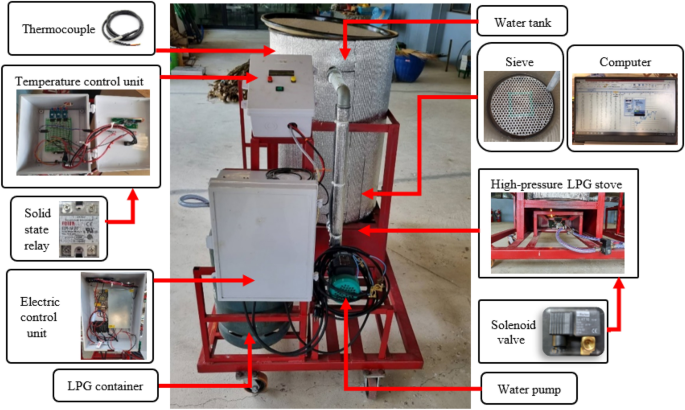Discover the Ingenious Benefits of Products From Sugarcane for Lasting Living
Sugarcane has become a crucial source in the mission for sustainable living. Its diverse applications extend naturally degradable packaging, eco-friendly power, and much healthier food choices. As industries look for green options, sugarcane's convenience offers encouraging services. Nonetheless, truth potential of sugarcane expands past its current uses. Exploring its ingenious benefits could disclose brand-new paths toward a much more sustainable future. What other possibilities might this remarkable plant hold?

The Rise of Sugarcane as a Sustainable Source
As worldwide recognition of ecological problems expands, sugarcane has emerged as a famous sustainable source. This flexible crop provides a selection of advantages that add to eco-friendly techniques. Sugarcane is a renewable resource, with the ability of flourishing in varied environments while taking in co2, thus alleviating greenhouse gas emissions. Its fast growth cycle enables constant harvesting, leading to a continual supply of raw material.Additionally, sugarcane growing commonly requires much less water contrasted to various other crops, making it an efficient choice in water-scarce areas. The by-products of sugarcane, such as bagasse and molasses, can be repurposed for numerous applications, minimizing waste and advertising round economic climate principles. Moreover, innovations in farming methods have actually led to more sustainable farming techniques, even more improving sugarcane's ecological profile. As customers increasingly seek sustainable choices, sugarcane stands out as a feasible option for those devoted to decreasing their ecological footprint.
Naturally Degradable Packaging Solutions
Just how can naturally degradable product packaging remedies change the method consumers come close to sustainability? By using sugarcane-based materials, these cutting-edge services use a compelling alternative to typical plastics. Naturally degradable packaging made from sugarcane decomposes normally, considerably lowering land fill waste and greenhouse gas exhausts. As customers end up being increasingly familiar with their ecological effect, the need for lasting product packaging continues to rise.These sugarcane-derived items not only serve functional functions yet additionally align with eco-conscious customer values. They supply a concrete way for individuals and organizations to add to a round economy, promoting source efficiency and reducing ecological impacts. In addition, as markets take on biodegradable choices, they promote a culture of sustainability that reverberates with a growing market looking for accountable choices.In essence, eco-friendly packaging options from sugarcane represent an essential progression in sustainable practices, equipping consumers to make eco-friendly decisions without sacrificing convenience or high quality.
Renewable Resource Generation From Sugarcane
A substantial section of sustainable power generation can be originated from sugarcane, showcasing its versatility beyond conventional farming usages. Sugarcane biomass, consisting of bagasse and leaves, is a powerful source for bioenergy manufacturing. This biomass can be transformed right into biofuels such as ethanol, which functions as a cleaner choice to fossil gas. In addition, the burning of sugarcane byproducts generates vapor and power, offering a power source for sugar mills and nearby communities.The growing of sugarcane likewise adds to carbon sequestration, as the plants take in co2 throughout their development cycle. By using sugarcane for power, waste is minimized, and sustainable practices are urged. This sustainable energy technique not only supports power needs but additionally promotes rural advancement, creating jobs in bioenergy industries. Overall, sugarcane stands out as a principal in the change to sustainable power options, aligning with international initiatives to decrease carbon footprints.
%20for%20sugar%20mills%20Manufacturer%20Netsol%20Water.jpg)
Eco-Friendly Textiles and Fabrics
Eco-friendly fabrics and materials derived from sugarcane offer an appealing choice to conventional materials. These eco-friendly choices not only reduce ecological effect but additionally provide resilience and efficiency equivalent to standard fabrics. Lasting manufacturing processes even more boost their appeal, making them an indispensable part of a lasting way of life.
Naturally Degradable Textile Choices
Why is the adjustment toward eco-friendly textile options vital for sustainable living? The enhancing understanding of environmental degradation has motivated a search for choices to traditional fabrics, which frequently add to contamination and waste. Eco-friendly textiles, stemmed from renewable energies such as sugarcane, provide an appealing option. These materials decay naturally, reducing garbage dump build-up and lessening ecological effect. Additionally, they can aid lower carbon footprints and dependence on nonrenewable fuel sources. As customers become extra eco-conscious, the demand for sustainable textiles expands, encouraging manufacturers to introduce and invest in eco-friendly alternatives. This adjustment not just supports sustainable techniques yet also fosters a circular economic situation, leading the way for an extra liable method to style and fabric production.
Sturdiness and Efficiency
When examining environmentally friendly textiles and textiles, durability and efficiency are essential variables. Sugarcane-derived materials show outstanding strength and durability, making them suitable for various applications. These textiles frequently exhibit exceptional moisture-wicking residential or commercial properties, which boost convenience in day-to-day wear. Additionally, their natural fibers add to breathability, guaranteeing that garments continue to be fresh and wearable also popular conditions. The efficiency of sugarcane-based materials reaches their resistance to tear and put on, allowing items to maintain their integrity with time. Furthermore, these environmentally friendly fabrics can be treated to boost UV protection and discolor resistance, satisfying the practical demands of consumers without compromising sustainability. Eventually, sugarcane textiles supply a harmonious balance of durability and efficiency, attracting eco mindful individuals.
Sustainable Production Processes
The excellent toughness and efficiency of sugarcane-derived fabrics are complemented by sustainable production procedures that focus on ecological responsibility. These procedures use renewable energies, decreasing reliance on fossil fuels and reducing carbon impacts. By harnessing the by-products of sugarcane cultivation, suppliers can create eco-friendly textiles while advertising waste reduction. Advanced strategies, such as water-efficient dyeing and eco-friendly therapies, additionally boost the sustainability of these textiles. Additionally, making use of non-toxic chemicals guarantees that the manufacturing process does not hurt environments or human health and wellness. This dedication to sustainability not only attract eco aware customers but additionally sustains local economies by promoting lasting agricultural methods. Overall, sugarcane-derived textiles represent a considerable step towards a greener future in the apparel industry.
Sugarcane-Based Biofuels and Their Effect

Sugarcane-based biofuels have actually emerged as a substantial alternate energy resource, providing a renewable remedy to the globe's growing power demands. These biofuels, derived from the fermentation of sugarcane juice or molasses, present an even more lasting choice compared to nonrenewable fuel sources. Their production process creates reduced greenhouse gas exhausts, adding to environment adjustment reduction efforts.Additionally, sugarcane biofuels can boost power safety and security by expanding power resources and lowering reliance on imported oil. The farming of sugarcane likewise advertises rural growth, producing work and promoting local economies.However, concerns concerning land use and food competition linger, as enhanced biofuel manufacturing may affect food supply chains. Sustainable agricultural methods are vital to stabilizing these guaranteeing and competing passions that biofuel production does not weaken food safety and security. In general, sugarcane-based biofuels represent an encouraging avenue for a greener power future, gave that their social and environmental implications are meticulously taken care of.
Much Healthier Alternatives: Sugarcane in Food Products
While numerous consumers look for healthier alternatives in their diet plans, sugarcane items offer a nutritious option to improved sugars and synthetic sweeteners. Stemmed from the natural removal of sugarcane juice, these products retain essential nutrients, including vitamins and minerals, that are typically shed in processed sugars. Sugarcane contains antioxidants and dietary fiber, adding to general health and wellness and wellness.Many health-conscious individuals are transforming to sugarcane syrup and jaggery, which give a reduced glycemic index contrasted to traditional sugars, making them appropriate for those taking care of blood sugar level levels. In addition, sugarcane-derived sugar can boost the taste of different dishes without the negative impacts connected with man-made additives.This change towards all-natural artificial sweetener not only promotes far better dietary selections but likewise aligns with lasting living practices, as sugarcane is an eco-friendly source. Sugarcane items are arising as favorable alternatives in the domain name of food products.
The Future of Sugarcane in Sustainable Technologies
The future of sugarcane is go to the website poised to include innovative applications that prolong past traditional usages. Its prospective as a source for naturally degradable product packaging services and renewable resource resources highlights its duty in sustainable practices. Checking out these developments might considerably affect environmental preservation and resource monitoring.
Naturally Degradable Packaging Solutions
An enhancing variety of firms are transforming to naturally degradable product packaging remedies stemmed from sugarcane as a promising option to traditional plastics. These cutting-edge products, often made from sugarcane fibers and bioplastics, decompose naturally, lowering the long-lasting environmental influence related to conventional plastic waste. By making use of renewable energies, sugarcane-based product packaging adds to a more sustainable manufacturing cycle, straightening with worldwide initiatives to battle air pollution and climate modification. In addition, these services typically preserve the longevity and performance required for numerous applications, from food containers to delivery materials. As consumer need for environmentally friendly options expands, services adopting sugarcane packaging not only improve their brand picture but also play a pivotal role in promoting a circular economy, leading the way for a greener future.
Renewable Power Resources
Naturally degradable product packaging solutions are simply one aspect of the broader potential of sugarcane in advertising sustainability. Another considerable application lies in sustainable energy sources. Sugarcane is a versatile crop that can be used to generate biofuels, such as ethanol, which functions as a cleaner option to nonrenewable fuel sources. The fermentation process of sugarcane juice yields ethanol that can power cars and produce electrical energy. Additionally, the by-products of sugarcane processing, like bagasse, can be made use of to produce biomass power, providing a lasting and efficient method to harness energy. This double role as both a source of biofuel and biomass highlights sugarcane's possibility in minimizing carbon emissions and sustaining a shift to an extra sustainable energy landscape in the future.
Regularly Asked Questions
Exactly How Is Sugarcane Collected Sustainably?
Sugarcane harvesting can be lasting with strategies like manual cutting, which decreases soil disturbance, and making use of machinery that lowers gas intake (Products From Sugarcane). Plant turning and incorporated bug monitoring better enhance ecological health and advertise long-term soil fertility
What Are the Ecological Influences of Sugarcane Farming?

Can Sugarcane Products Be Recycled?
The question of whether sugarcane products can be reused discloses a favorable overview. Several sugarcane-derived products, Read Full Report such as bioplastics and product packaging, are made for recyclability, adding to an extra lasting waste administration method within environmental considerations.
Exist Any Type Of Downsides to Utilizing Sugarcane-Based Products?
The drawbacks of using sugarcane-based products include prospective land use competitors with food crops, challenges in large production, and concerns concerning the environmental impact of monoculture farming practices, which can decrease biodiversity and soil health and wellness.
How Does Sugarcane Farming Affect Citizen Communities?
Sugarcane farming impacts regional neighborhoods by offering job opportunity and boosting regional economic climates. Nevertheless, it can likewise lead to land disagreements and ecological issues, affecting farming techniques and neighborhood health, requiring a balanced strategy to advancement. Innovations in farming practices have led to more lasting farming methods, further improving sugarcane's ecological account. In addition, the combustion of sugarcane byproducts creates steam and electrical power, providing an energy source for sugar mills and close-by communities.The cultivation of sugarcane also contributes to carbon sequestration, as the plants absorb carbon dioxide throughout their growth cycle. By utilizing sugarcane for her explanation power, waste is reduced, and lasting techniques are urged - Products From Sugarcane. Sugarcane has antioxidants and dietary fiber, contributing to overall wellness and wellness.Many health-conscious individuals are turning to sugarcane syrup and jaggery, which provide a lower glycemic index compared to traditional sugars, making them ideal for those managing blood sugar levels. In addition, the by-products of sugarcane handling, like bagasse, can be used to produce biomass power, providing a sustainable and reliable approach to harness power